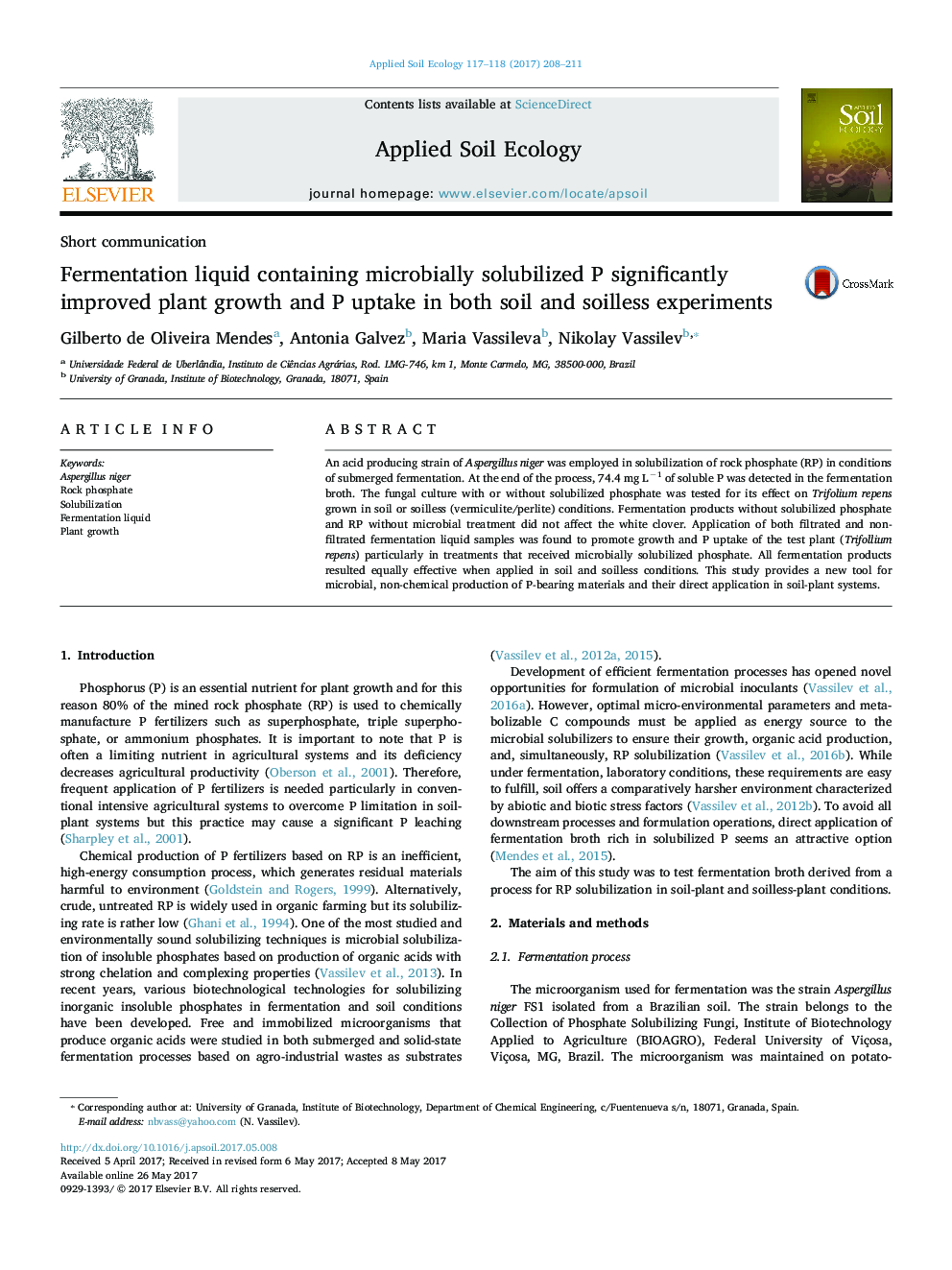| Article ID | Journal | Published Year | Pages | File Type |
|---|---|---|---|---|
| 5742656 | Applied Soil Ecology | 2017 | 4 Pages |
An acid producing strain of Aspergillus niger was employed in solubilization of rock phosphate (RP) in conditions of submerged fermentation. At the end of the process, 74.4 mg Lâ1 of soluble P was detected in the fermentation broth. The fungal culture with or without solubilized phosphate was tested for its effect on Trifolium repens grown in soil or soilless (vermiculite/perlite) conditions. Fermentation products without solubilized phosphate and RP without microbial treatment did not affect the white clover. Application of both filtrated and non-filtrated fermentation liquid samples was found to promote growth and P uptake of the test plant (Trifollium repens) particularly in treatments that received microbially solubilized phosphate. All fermentation products resulted equally effective when applied in soil and soilless conditions. This study provides a new tool for microbial, non-chemical production of P-bearing materials and their direct application in soil-plant systems.
